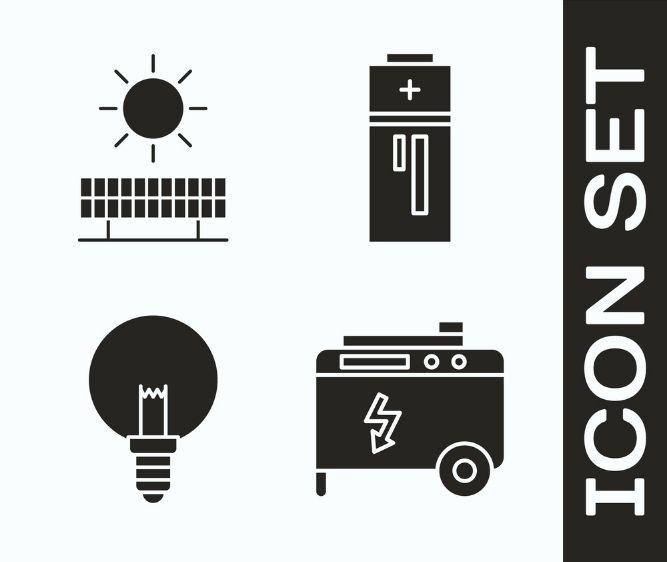When the power goes out, you may sit around wondering when it is going to come back on. Do you ever wish you could turn it back on yourself? You can! If you’re looking for a backup power supply source for your home or business, there’s a lot to consider. With so many options, from propane, diesel, or gas-powered generators to battery backup power, you’ll have to weigh the pros and cons of each source. We’ll cover the benefits and disadvantages you should consider when it comes to generators or backup batteries:
How Much Power?
Firstly, you should perform an energy audit and calculate how much power is used in your home. Once you know how much power is being used by appliances, you can decide what the best option is for your power needs.
The Differences
Generators
Standby generators are powered by natural gas, liquid propane, or diesel. In a case when you lose power from the electrical grid shutting off, the generator will automatically use its fuel source and start-up, resupplying power.
Batteries
Battery backups can connect to the electrical grid, pulling power from it and storing it away. If a power outage strikes, the system will automatically switch off from the grid and begin using the power that it has been saving. There are also systems that harvest energy from solar panels, which store it away until an emergency arises.
Pros and Cons
Maintenance/Fueling
A generator runs on fuel, which means that it will always have to be continuously replenished if used often or for prolonged periods. If you don’t have any fuel stored up somewhere, it can pose a serious problem in the face of an emergency. Your generator will also need frequent testing to ensure it’s running safely. It’s recommended that you run a generator once a week for about 30 minutes. Generators are quite noisy.
There isn’t much maintenance required for a battery backup. It’s quiet and doesn’t require any fueling, as it connects to the power grid or absorbs solar energy. Battery backups are less likely to fail during emergencies but do run the risk of running out of power if the grid is off for a long time. In some cases, if you own an electric car, you can plug it in to add to your battery backup.
Pricing
Generators require constant refueling, which means that costs increase with use. Depending on the size of the generator and which fuel source you choose, they can range from $500-15,000, plus installation.
Batteries will also require an installation fee, along with the cost of the unit. The price is less than a generator but can still be expensive, as the amount of power you would require can play a factoring role. If you already have solar panels set up, you can opt for a solar-powered backup.
Environmental Factors
Generators emit fumes, which may not be a great choice if you are concerned about the environment. Backup batteries are more advantageous in protecting the environment, as their utilization of energy absorption has a minimal impact.
Generators and backup batteries both have their perks. Contact solar Manitoba services today if you’re interested in providing your home or business with a reliable backup power source. You will find a plethora of solar-powered options that provide you with a safe and trustworthy resource.

